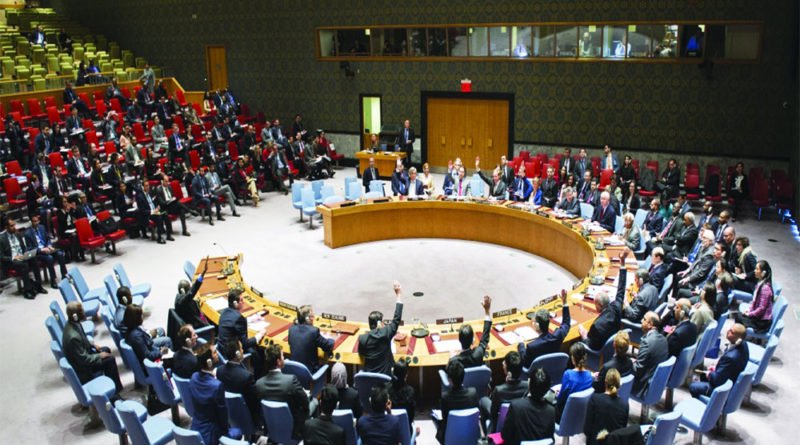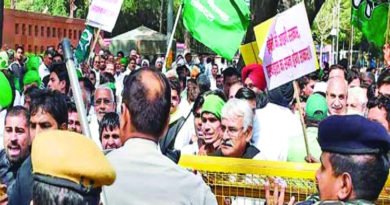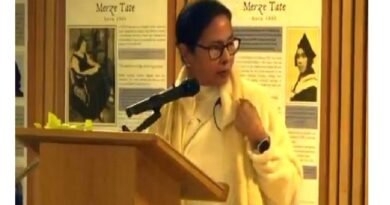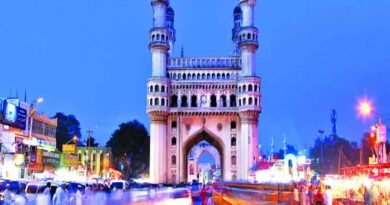A seat at the high table
India should now push for a permanent seat at the UN Security Council. As the largest democracy and contributor to peace-keeping forces, it deserves more
A pejorative wisecrack on the United Nations is that it has become the “useless non-existent organisation.” For example, in 1999, the then UN Secretary-General, Kofi Annan, suddenly flew to Delhi to “mediate” in the Kargil War only to be politely told by the Atal Bihari Vajpayee Government to mind his own business and be gone. It is reported that this international body employs some 1,00,000 employees. If the average cost of each is taken to be $50,000, it means an expenditure of five thousand million dollars annually. The organisation’s other expenses are separate.
The late American columnist, Charles Krauthammer, had dubbed the UN a “corrupt impostor, undeserving of any American support”. Titled A Table for Tyrants, the former Czech President Vaclav Havel wrote an article in The New York Times saying that he felt scandalised when he saw the UN Human Rights Council filled with members like Sudan, Zimbabwe, China and Saudi Arabia, which had no human rights.
Yet, India continues to be an elephantine contributor to the UN peacekeeping contingents and has sent nearly 2,00,000 peacekeepers to 44 missions over the years. This is more than the national armed forces of most countries. Indian forces working for the UN have suffered more casualties than any other country’s armed forces. Our policy-makers argue that this is being done not for any strategic gains but in the service of “global ideals” — like strengthening the world body and international peace and security. On the other hand, the UN did not even condemn China’s unprovoked aggression against India in October 1962, leave alone do anything about it. The irony is that the dictatorial and communist China enjoys a permanent seat in the Security Council while India, the world’s largest democracy, does not.
The UN also did not support India in its Bangladesh War waged solely to bring relief to East Bengalis, who were at the receiving end of Pakistan’s genocidal crackdown. The UN passed a resolution making the State of Jammu and Kashmir an internationally disputed territory despite evidence that it was Pakistan that invaded Indian territory in October 1947. The dispute, which has seen four wars and continuing jihadi infiltration and terror attacks, has been geopolitically laid to rest by India’s unilateral abrogation of the controversial Article 370, and not because of the UN.
The world body has failed miserably in bringing a terrorist-endorsing country like Pakistan to heel or prevent its nuclear proliferation. It is India that has had to deal with Pakistan on its own. Apart from the importance of this international organisation, India’s boundless naiveté in the Nehruvian era cannot be denied.
The only service the UN arguably performed was to provide a platform for radical communist elements and a whole generation of dictators and autocrats to portray themselves as leaders and statesmen. Most notable in this regard was India’s Krishna Menon, whose vitriolic anti-Western rhetoric and fire-spitting speeches in the UN earned him the dubious sobriquet of a “spitting camel” — he was so dubbed by the Americans who hated Menon’s patronising lecturing — but also more seriously earned India a lot of Western ill will.
The failures of the UN make an unusually long catalogue beginning with 1948. That year, the Soviet Union blocked Berlin. The only action that prevented the city’s surrender was the American airlift of all conceivable supplies in the spirit of Ich bin ein Berliner (I am a Berliner), the famous words of President Kennedy in 1961. In the Korean War (1950-53), the communist North had gone all out to take over the entire peninsula. Again, the UN could do nothing. It watched Vietnam being bombed more intensively than seen anywhere, anytime since or before World War II. In 1956, the Anglo-French invasion of Egypt over the Suez Canal issue yet again proved the UN’s incompetence. As it did again the same year when the Soviet Union invaded Hungary. In 1959, the world witnessed the annexation of Tibet by China. In 1968, the international body looked askance at the Prague spring when Soviet tanks rolled into Czechoslovakia.
The idea of an international concert of nations began in the post-Napoleonic period with the primary objective of avoiding war. At the start of World War I, the call for an international organisation to prevent future wars began to gain considerable public support, particularly in Britain and the US. Goldsworthy Lowes Dickinson, a British political scientist, coined the term “League of Nations” in 1914 and drafted a scheme for its organisation. Together with Lord Bryce, he played a leading role in establishing a group of international pacifists known as the Bryce Group, later the League of Nations Union.
The forerunner of the League of Nations, the Inter-Parliamentary Union (IPU) was formed by peace activists William Randal Cremer and Frederic Passy in 1889 and is currently still in existence as a body with a focus on the various elected legislative bodies of the world. The IPU was founded with an international scope, with a third of the members of world parliaments serving as its members by 1914. It aimed to encourage Governments to solve disputes by peaceful means.
The concept of a peaceful community of nations had been proposed as far back as 1795. Immanuel Kant, German metaphysician and philosopher, whose comprehensive and systematic work on the theory of knowledge, ethics and aesthetics greatly influenced philosophy, outlined the idea of a league of nations to control conflict and promote peace between States in his work Perpetual Peace: A Philosophical Sketch. He argued for the establishment of a peaceful world community, not in a sense of a global Government, but in the hope that each State would declare itself a free State that respects its citizens and welcomes foreign visitors as fellow rational beings, thus promoting a peaceful society worldwide.
International cooperation to promote collective security originated in the Concert of Europe, which developed after the Napoleonic wars in the 19th century, in an attempt to maintain the status quo between the European States and avoid war. This period also saw the development of international law, with the first Geneva Convention establishing laws dealing with humanitarian relief during wartime. Then the international Hague Convention of 1899 and 1907 laid down governing rules of war and the peaceful settlement of international disputes.
As historians William H Harbaugh and Ronald E Powaski point out, Theodore Roosevelt was the first American President to call for an international league. While accepting his Nobel Peace Prize, Roosevelt said: “It would be a masterstroke if those great powers honestly bent on peace would form a League of Peace.” Such an idea should logically have emerged from Europe, whose long history is a record of almost unending wars. At the end of the Great War, the League of Nations came up in the hope of ending the era of war and healing the West with an age of peace. Yet again, this idea emerged from American President Woodrow Wilson.
However, the credibility of the League of Nations was weakened by the fact that the US never joined it and the Soviet Union joined rather late and was soon expelled after invading Finland. Germany withdrew from the League, as did Japan, Italy, Spain and others. The onset of World War II showed that the League had failed its primary purpose, which was to prevent any future world war. The League lasted for 26 years and the UN replaced it after the end of World War II, inheriting several agencies and organisations spawned by the League.
True, the League of Nations did not last long. Yet, credit must go to it for having spawned the International Court of Justice and the International Labour Organisation and other bodies. It is doubtful that the UN would leave behind anything memorable except for its performance of profligacy. It is high time India told the big powers to give it a permanent seat in the Security Council with veto power. If the Council does, well and good, or else, New Delhi should not be as committed to an organisation that costs it time, money and honour.
(The writer is a well-known columnist and an author. Views expressed are personal)
Source: The Pioneer




